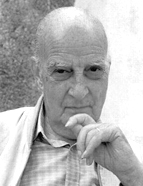

Since the end of the 1940s, Rómulo de Carvalho focused on producing studies to disseminate science, which made a significant contribution to the education of young people and adults interested in these subjects and whose access to them was practically denied. In 1947, he published a volume in the ‘Biblioteca Cosmos’ [Cosmos Library] , directed by Bento de Jesus Caraça, entitled A ciência hermética [The hermetic science] , in which he stated that it was the author ’ s ‘intention that this volume should be the first of a vast and complete History of Chemistry ’ . D ue to the restrictions of that period, it was only followed by a second title, O embalsamento egípcio [The Egyptian embalming] (1948). However, this first attempt at well-structured scientific dissemination was taken up again in the 1950s and 1960s, with the preparation of eight studies which, together with another by Ilídio Sardoeira, made up the collection ‘Ciência para Gente Nova’ by Editora Atlântida (Coimbra) and which dealt with the history of the telephone, photography, balloons, static electricity, the atom, radioactivity, isotopes and nuclear energy. Some of these volumes were reissued over the years. Later (1979-1985), Rómulo de Carvalho published the ‘C adernos de Iniciação Científica’ [Scientific Initiation Notebooks] series for Editora Sá da Costa (Lisbon), with a total of 18 titles covering topics as diverse as A descoberta do mundo da Física [Discovering the world of Physics] (1979), A pressão atmosférica [T he atmospheric pressure] (1982) or Ondas e corpúsculos [Waves and corpuscles] (1985). Also , still in the field of science dissemination, he wrote Física para o povo [Physics for the people] (2 vols., 1968) and translated Mr Tompkins E xplores the A tom by George Garnow (1956). As a historian of education, in 1959 , he published the study História da fundação do Colégio Real dos Nobres de Lisboa [History of the foundation of the Royal College of Nobles of Lisbon] (1765-1772) , dedicated to the memory of Prof essor Joaquim de Carvalho. This work, which is still an obligatory reference for historians in the field today, was already part of a series of personal works on the history of Science in Portugal produced on the basis of detailed analysis of hitherto unknown archives. In Rómulo de Carvalho ’ s own words, his research method consisted of ‘documenting everything that is affirmed, systematically questioning the statements already made on the same subjects’, with the scientific aim of ‘helping to establish the truth of events and, at least, that which, with sufficient guarantee’ seemed to be more truthful. This research work was a breakthrough in the field of the History of Education, following the so-called ‘Annales School’, breaking with the trend of Portuguese historiography that was limited to an erudite descriptivism in which pedagogical facts were presented detached from the social context.
This work is financed by national funds through FCT - Foundation for Science and Technology, I.P, in the scope of the projects UIDB/04311/2020 and UIDP/04311/2020.
